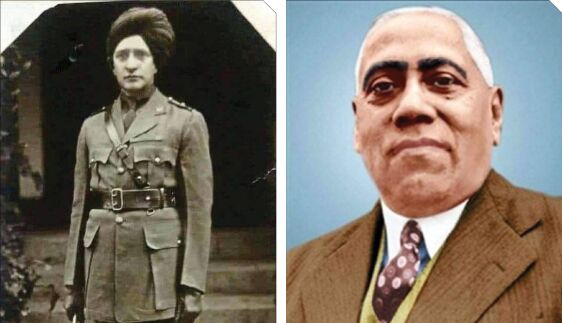Inexplicable hold-up
Even as a merger with Pakistan was ruled out, and Hari Singh expressed willingness to accede to India, there was a considerable delay which cost India dearly

On August 11, 1947, Major General Janak Singh Katoch, CIE was brought out of retirement from Himachal and made the prime minister of Jammu and Kashmir. During his brief premiership of less than three months, he signed the Standstill Agreement with Pakistan, but could not anticipate the political volatility on the ground – Hindu and Sikh refugees pouring into Jammu, the unprecedented communal violence in Jammu, Poonch and Mirpur, the relinquishment of Gilgit by the British, and the failure of the state troops to prevent the chain of violence against the Muslims in Jammu and Poonch, and Hindus and Muslims of Muzaffarabad. The arrest of Ram Chandra Kak – with whom Jinnah emissaries had opened a dialogue was a signal that the option of a merger with Pakistan could now be ruled out.
As such, the Muslim League raised the banner of revolt in Poonch, Mirpur and Muzaffarabad by encouraging disaffection and unrest on account of disruption in supplies of food and fuel. By the second week of September, Pakistan PM Liaquat Ali Khan was egged by Colonel Akbar Khan, Sardar Shaukat Hayat Khan and Muslim League officials in the Northwest Frontier Province to organise a large-scale invasion on Kashmir by Pathan tribesmen. Led by Sardar Ibrahim, a Muslim Conference leader, they took control of most of the western parts of the state by October 22 and, on October 24, they formed a provisional Azad Kashmir.
The Maharaja's troops could not withstand the tribal militia attacks in September for three reasons — they were heavily outnumbered, they faced desertions and there was no leadership or clarity. The Maharaja made an urgent plea to Delhi for military assistance, reiterating the point that he had been keen on accession from late July, and certainly after the deposition of Ram Chandra Kak. However, Nehru was keen that the accession should be endorsed by Abdullah as well – although there was absolutely no legal requirement for this. This critical delay cost India quite dearly. Justice Mehr Chand Mahajan, Maharaja's nominee as his next prime minister, visited Nehru and Patel in Delhi on September 19, 1947, requesting essential supplies which had been blockaded by Pakistan since the beginning of September. He conveyed Maharaja's willingness to accede to India. Nehru, however, made the release of Abdullah from prison, and his endorsement, as a precondition, and Maharaja released Sheikh Abdullah on September 29.
Even after this, there was a delay of nearly four weeks. If Patel had his way, the accession could have been signed by late September and the Indian army could have stepped in to ensure law and order. This is clearly borne out in a recent book by PC Dogra. He goes so far as to say that only when the Sheikh gave the green signal to Nehru on October 24 that Nehru accepted the Instrument of Accession on October 26 and 27, 1947. Unlike the other 560 Instruments of Accession signed till that date, this one was an exception — with the proviso that it would be submitted for a "reference to the people" after the state is cleared of the invaders, since "only the people, and not the Maharaja, could decide where Kashmiris wanted to live". This was again the accepted 'legal position' as sovereignty was reverted to the rulers after the Indian Independence Act of 1947.
This was a major strategic victory for the Sheikh who exploited this situation to the hilt in the years to come. In a carefully drafted statement, the National Conference leader Syed Mir Qasim, said: India now had the "legal" as well as "moral" justification to send in the army through the Maharaja's accession and the people's support of it.
However, the Press Attaché to Mountbatten Campbell Johnson gives a different version: "It is probable that nothing short of a full-scale tribal invasion to the gates of his capital would have induced the hesitating Maharaja to accede at all". Irrespective of who or why, on October 24, 1947, Maharaja Hari Singh wired India for military help to defend Srinagar, and had sent PM Mahajan to plead his case. In the capital, Sheikh Abdullah too urged his good friend Nehru to send troops to push back the invaders. India decided to help, but only on the condition that Maharaja Hari Singh signs the Instrument of Accession, which he did two days later on October 27.
Views expressed are personal



